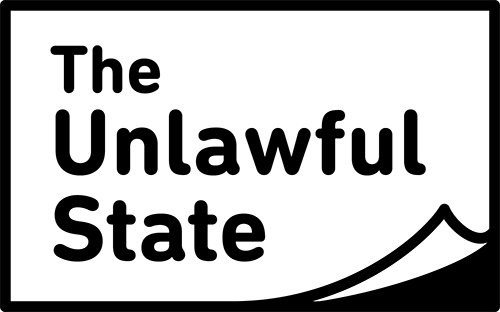All but abandoned by the state, Shairaz Khan, who has learning difficulties, is at the hard end of a decade of funding cuts. This is part of OpenJustice’s Unlawful State series – find out more here.

Outside his window traffic on the A312 moves through the night, a sound that never ceases. Inside his stuffy room, Shairaz Khan sits on a bed with everything he owns piled up around him.
There isn’t much: an Xbox games console, a microwave, fridge, a couple of books. There are some photographs on the wall and the single bed has a duvet with a stars and stripes cover on it. Shairaz’s girlfriend says there are bed bugs in it but he lifts up the mattress and says you’d see them if they were there and he doesn’t think they’re there.
In the corner of the room, a pile of clothes, old pillows, a bag, a single unit wardrobe half submerged. A bottle of Dr Pepper sits under the small table dominated by the Xbox.
The room is hot. The carpets look like they haven’t been cleaned for years. If you open the window all you do is invite in heavily polluted air from the road outside. Downstairs, glue traps attest to a rat infestation and the cooking facilities are practically non-existent.
“It can get quite claustrophobic”, says Shairaz. He is 41-years old and from Acton in West London. He has moderate learning difficulties – an assessment when he was younger found that he had about the mental age of a 12-year old – and he suffers from anxiety and depression. A few months ago, he had to spend a number of days in hospital because of a serious chest infection.
Despite having assessed eligible care and support needs, Shairaz has been living alone and without adequate support in this B&B in Northolt, in the far western London suburbs. He has been here for three years, the victim of central government cuts that, lawyers told us, have led to local authorities failing to meet their legal duties under the Care Act 2014.
Shairaz’s learning difficulties make him an easy target. He has been bullied, tricked and assaulted repeatedly. At one point, while in another accomodation, he was preyed on by drug dealers, who used his room as a base and regularly beat him up. In the B&B, he is sometimes forced to smoke what he says he thinks is marijuana but, based on his description, is almost certainly crystal meth.
Shairaz once had, as per the recommendation of more than one assessment, three hours of one-to-one care every day. Now, though his disabilities have deteriorated, social services say that he only needs between one and two hours a week, a requirement Shairaz’s family says they don’t meet. His learning difficulties mean that basic care is all but beyond him. His room is filthy. Nothing is organised. Unable to keep track of time properly, Shairaz cannot cook for himself, and he says that the breakfast he is meant to receive every morning is never provided.
“I’ve been neglected by social services,” Shairaz tells us. “They’ve just left me to get on with it. I don’t think that’s right because I don’t belong here. I belong in supported living.”

Shairaz Khan, 41, has moderate learning difficulties and is struggling to care for himself. | Oliver Rickett.
He is not alone. In its 2019 budget survey, the Association of Directors of Adult Social Services (ADASS) admitted that by next year only 5% of local authorities were “fully confident” that they will meet their legal duties to provide care.
“The failure of any government to address social care is having severe impacts on people needing care, their families and the people who work in arranging and delivery of care,” the report said, noting an “escalating crisis in social care” that is denying older people, disabled people and their families “the support they need and deserve.” It is estimated that around 1.5 million older people in Britain have unmet social care needs. The number is of course larger for the rest of the population but the statistics don’t yet exist.
The consequences for Shairaz, his family and those in similar situations are grave.
Having been told he would only be in the B&B for two weeks, Shairaz has deteriorated over the three years he’s been there and has attempted to take his own life. “This place is making me really upset and depressed”, he says. “I don’t feel safe here. I couldn’t sleep last night because I was continuously worried about a guy in the house who might come and disturb me or ask me for cigarettes. I can’t sleep here.”
Speaking to openJustice, Kari Gerstheimer, Director of Information and Advice at Mencap, said that because of “the funding cuts that have really impacted on local authorities – and those cuts have happened since 2010 – we are seeing increasingly that local authorities are having to make very difficult decisions about how they spend their money.”
“I think it’s fair to say that too often it is leading to unlawful decisions,” she added, pointing to clear breaches of the Care Act 2014 and the Mental Capacity Act 2005. In Dorset, the father of a 20-year old boy who has needed social care since he was a small child, pointed out that while the right level of care is required by law, what is delivered in reality does not befit a civilised nation. He told openJustice that his son has been issued with a section 21 eviction notice and is expected to move out of his care home in a matter of days, despite having nowhere to go.
The Khan family are in agreement. At a McDonald’s on an enormous, ever churning roundabout a few minutes walk from his house, Shairaz’s mother Bina, 62, and his sister Saeeda, 34, talk about their recent fight to get him properly housed and cared for.
“We as a family feel that there is a great injustice, we feel despair”, Saeeda says. “His living conditions are inhumane. The system is flawed, and Ealing social services have handled it in such a poor way. We feel extremely sorry for Shairaz and it is heartbreaking to see him like this. Most of the time, we feel voiceless and that no one cares. We have used a lot of resources, effort and time and still haven’t got anywhere.”
One ray of light has been the help the family has received from Mencap, which they say has been consistent and invaluable, providing hope where they often seems to be none. Saeeda got in touch with the charity for people with learning disability last year, after a slew of other organisations had been unable to help. “I was taking so much time off from work and it was mentally exhausting”, Saeeda says. The charity’s legal strategy manager Hannah Hewish took over communicating with social services, wrote emails and took the case forward. “I don’t think I would have been able to cope without her support”, Saeeda says.
That support has been much needed in what has been a very difficult time for all the family. “I couldn’t sleep the first time I saw this room”, says Bina, a housekeeper originally from Swat, in Pakistan. She married her children’s father when she was 16, but he was a violent alcoholic and after 13 years, she managed to escape the union, first to a refuge and then to a home of her own.
In October 2018, a social worker acknowledged that Shairaz’s situation was untenable and assured the family that the ordeal would soon be over. The local authority agreed to put him back into supported living and had found a place next to his girlfriend’s accommodation. Over the next few months, nothing happened, the family were kept in a holding pattern and it became clear that Shairaz wasn’t going to be moved.
Saeeda says that the social worker told them it was “due to cost”, but, she adds, “he was careful not to put that down in writing”. Another social worker told her that “our budget has been cut and our workload has increased”. The family were previously told that Shairaz was in fact “thriving” in the Northolt B&B and he didn’t need to be moved. “No-one who sees Shairaz in that room can say he is thriving”, Saeeda says. Her brother agrees.
Responding to questions from openJustice, an Ealing Council spokesperson said: “We are in regular contact with Shiraz [sic] Khan and his family members. We have recently undertaken a Care Act Assessment, and we are working with Shiraz [sic] to identify accommodation and support that will continue to promote his independence and well-being.
“Adults Services are committed to meeting their statutory duties and obligations under the Care Act by delivering support to individuals in line with their assessed needs.”
Again and again, Saeeda and Bina have raised safeguarding issues with social services, which they say have been ignored. Shairaz cannot budget properly and as a result often ends up not eating for more than a day at a time. His girlfriend, who receives social care, is addicted to bingo and takes money from Shairaz. NHS statistics show that, nationwide, there has been an increase in safeguarding referrals and a decrease in safeguarding investigations.
Furthermore, notes Kari Gerstheimer, local authorities are carrying out poor, sometimes unlawful, social care assessments, because there are “ fewer specialists with the right knowledge of learning disability. It’s simply that often the assessor is not suitably qualified to be assessing”. Of course, poor quality assessments are often also unlawful.
Mencap are using the law to fight back on behalf of people like Shairaz. Education is a key part – a gut feeling from a family member or care service provider that a situation is ‘wrong’ can be turned into knowledge that it is in fact unlawful. This empowers them to take action to challenge an individual’s case – perhaps through initiating litigation, although cases often settle before they get to that stage. In conversation with Kari Gerstheimer, we learned about their legal solutions and how they might be applied in other contexts.
Back in the McDonald’s, on the roundabout, Shairaz talks directly to his mother and sister. He apologises for years of pain. “I was very bad”, he tells them, “I never listened, I thought I could take care of myself. They say what’s past is in the past, but I still remember it… I want to be a better son, a better brother.”
There are tears in Bina’s eyes. Shairaz says if he had supported living, things would be better, and his family remember when he did, talking about a time in which Shairaz was able to go to college, work as a volunteer receptionist and help out on a farm. He was being given the care he needed and in return, he was giving something back, showing everyone how much potential he really has. “He looked different then”, Saeeda says.
Following the publication of this article, Ealing Council contacted the Khan family and found different, more suitable accommodation for Shairaz.
This article is part of the Unlawful State series where we investigate unlawful decision making by the UK government. We also hear from pioneering NGOs using the law to tackle the problem. See here for more.







